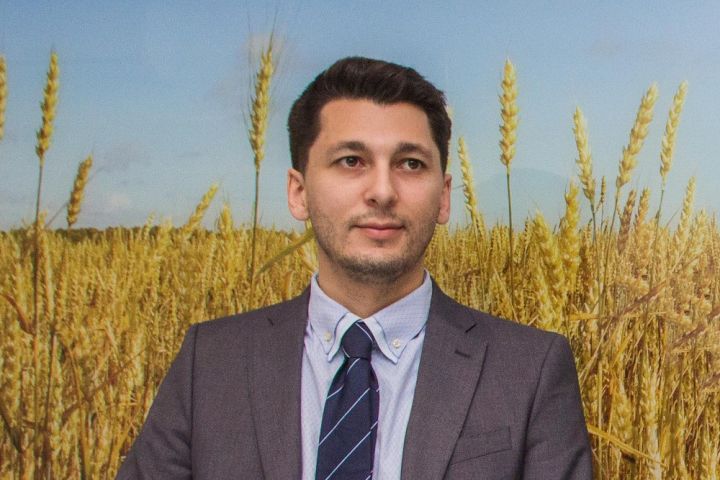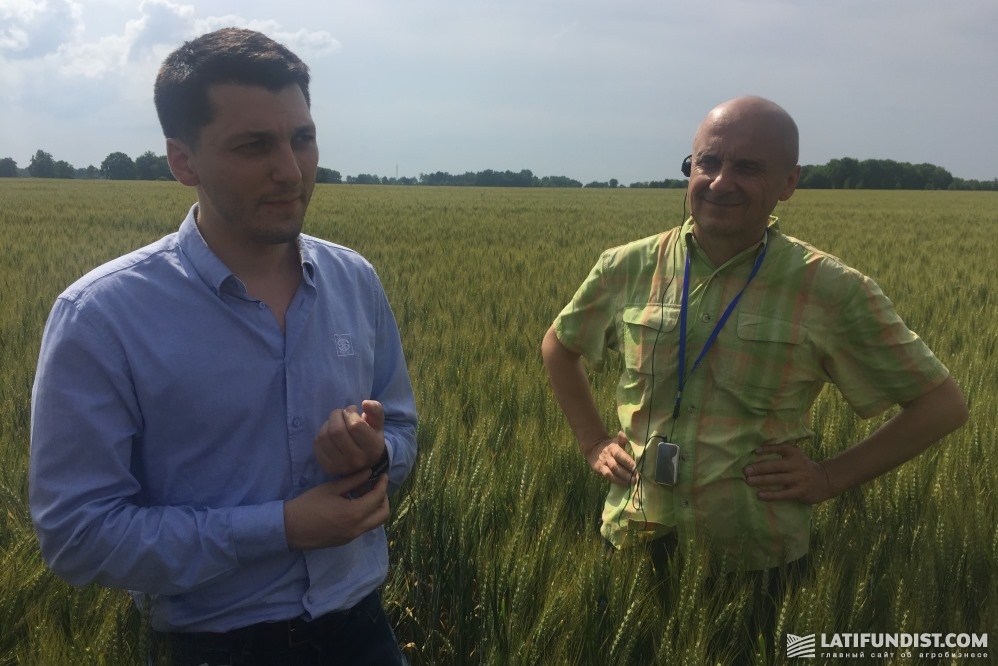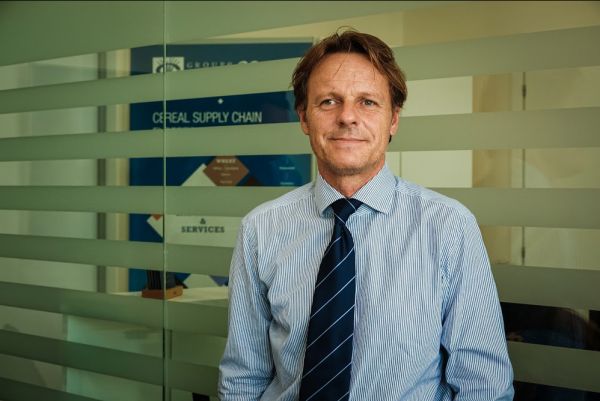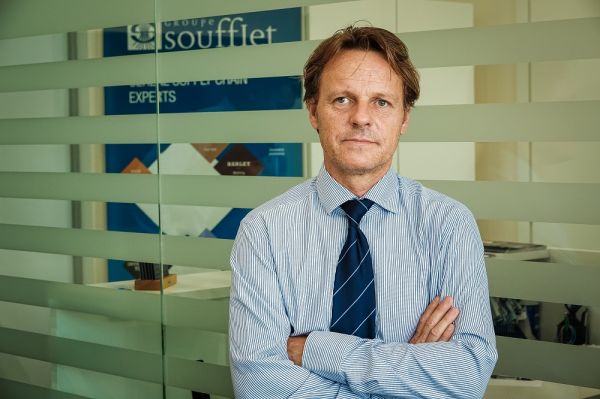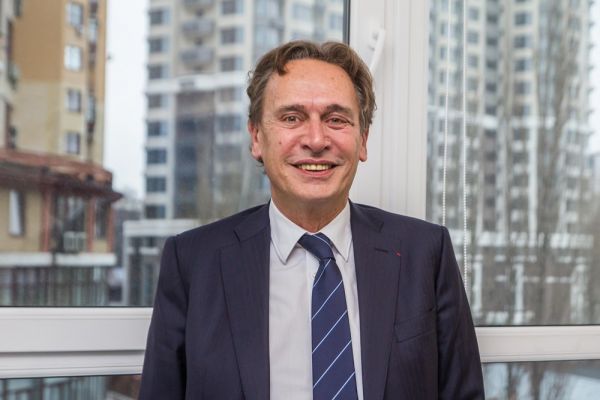Samuel Robard: There Are Three Keys to Success: Work, Work, and Work
Samuel Robard, CEO of Soufflet Agro Ukraine, lived in the Khmelnitsky region for several years now, he speaks literary Ukrainian, and prefers the taste of Ukrainian bread to French. Congratulating the Ukrainian division of Soufflet Group on its 10th anniversary, we mentally return to the summer Tour de France. We publish the interview with the young director, where we are trying to figure out why he would not change Ukraine for any other country. And when he will have his own farm here, or at least a company’s port elevator :)
Latifundist.com: Samuel, you grew up on the father’s farm. What is your brightest memory from childhood?
Samuel Robard: The time, when we went to the elevators during the harvest campaign in late June. For me, it was an important event, and most of all I was fascinated by the trading what we produced. Probably, these were the roots of agricultural management in my life (laughs).
Latifundist.com: Another interesting step on the way to Soufflet is an internship in Australia. What can you say about this country?
Samuel Robard: There is a special approach to farming. The climate in Australia is so dry that any idea, even the smallest one that is born in the head of an Australian farmer, starts from considerations of water resources. I worked there on a farm of 2 thousand hectares, run by only 2 people — the husband and his wife. They apply No-Till technique, minimizing costs. This, in fact, is the cliché that we have established for ourselves about an Australian farmer. But I also worked on another farm, located closer to the sea (there is more moisture), where we grew rapeseed, soybeans, and sunflower.
Latifundist.com: Does it happen that European farmers, having a full-time job at the factory or elsewhere, cultivate their land plots in the evening?
Samuel Robard: Yes, they do. That is why in Ukraine I learned to perceive agriculture as a business. In the fields, I learned from Ukrainians their communication style, and since then I have understood many nuances.
Latifundist.com: So their approach is not similar to the one you studied in the international business finance program at the university?
Samuel Robard: I graduated from the agricultural college, and then I studied business financing. In one of the lectures, I heard that Ukraine's agriculture is a promising area for investment. Since then, this thought has settled densely in my head. And here I am.
Latifundist.com: Would you change Ukraine for another country? After all, Soufflet Group has representative offices all over the world.
Samuel Robard: We recently discussed this with Florent Guignier, my French colleague and deputy in Ukraine. No, I would not change it. Ukraine with its agriculture is the best in the world. And I'm not saying this because you want to hear it (smiles).
Latifundist.com: We heard about your approach to recruiting young students to the Soufflet Agro Ukraine team. What philosophy do you follow in this direction?
Samuel Robard: You know, here we play by contrast. After all, there are people like Mykola Matviychuk who worked with Soufflet long before the first Frenchman came. They started 15 years ago, while the official representation of Soufflet in Ukraine appeared 10 years ago. At that time there were about 10 of them, and now we call them a "historical team". But there are also young people like me. We literally came to universities for them. Thus, we combine "historical" experience in business and youth dynamics.
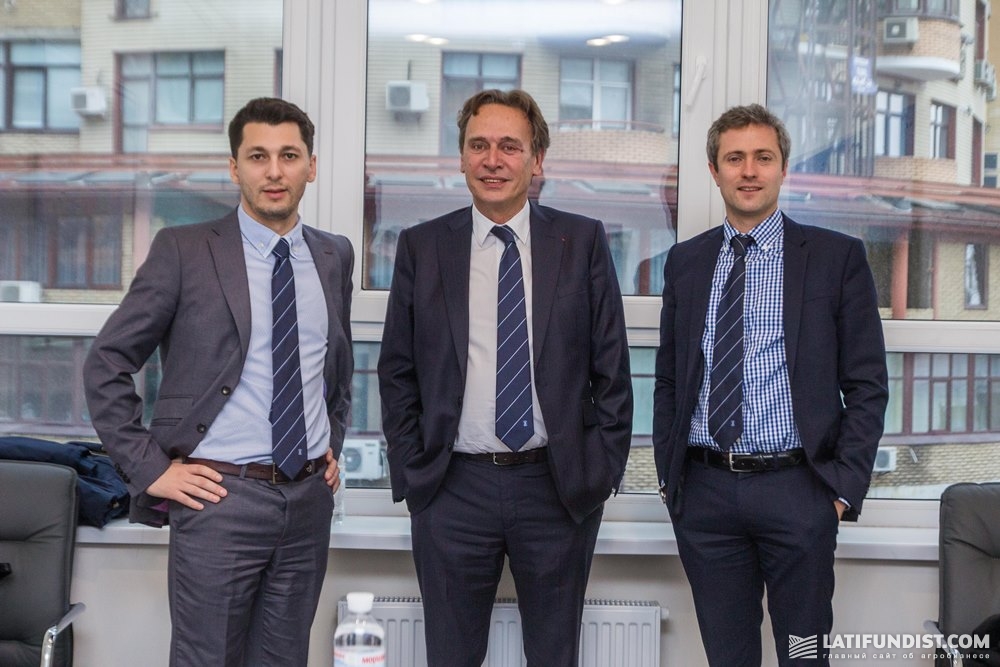
Latifundist.com: What is the strategy of Soufflet Group in Ukraine?
Samuel Robard: During 10 years of the Group's establishment in Ukraine, we have been purchasing elevators, and now we are focused on grain procurement and distribution. For example, until recently, Soufflet Agro Ukraine was associated only with brewing barley. But now we follow the French distribution model. Of course, "copy-paste" will not work out, but we can adapt the best practices that were developed in France for the Ukrainian market.
Our idea is that, in addition to supplying economically profitable and quality products, the work should be conducted in a permanent partnership with a farmer. I believe that in Ukraine we will reach the same model as in France when farmers work with Soufflet for 5-6 generations. No one has refused the quality agronomic support on an ongoing basis.
Latifundist.com: What segment do you focus on: farmers or agroholdings?
Samuel Robard: Historically, we worked with medium-sized farmers with 3-5 thousand hectares of land or less. We never refuse to provide agronomic, financial, or logistical services. But now Soufflet Agro Ukraine works with the largest players in the market: we have contracts with MHP, Agro-Region, Cygnet Holding, Svarog West Group and AgroGeneration and work together with them on growing winter malting barley in France and also in other areas. Winter barley, which came to Ukraine, in fact, simultaneously with Soufflet, is now a very promising culture. We achieve yields of 6-7 t/ha.
Latifundist.com: Who are the main competitors of Soufflet in Ukraine?
Samuel Robard: No one (laughs).
Latifundist.com: The plant in Slavuta is known for having refused from gas consumption. Does it work at full capacity, and do you plan to increase it?
Samuel Robard: Our plant operates at full capacity and produces 160,000 tons of malt per year. When we acquired the factory in 2004, we immediately began the process of modernization, which does not cease during the entire period of operation. These are improvements related to energy supply, safe working conditions and quality management. Due to these changes, we have doubled production indicators since we bought a factory with a capacity of 90 thousand tons.
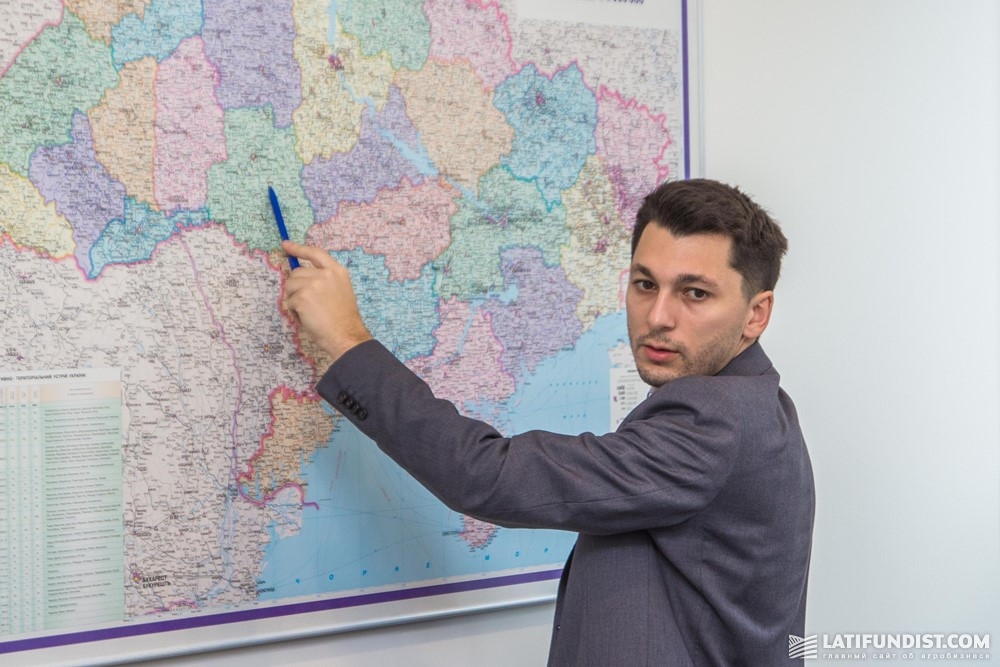
The malt produced in Slavuta is of the highest quality because this malt is made by Soufflet, and no matter where — in France or Ukraine. By the way, until 2007 Slavuta plant was the largest malt plant in Europe, but at that time Soufflet Group built an even more powerful enterprise in France.
You are right, 3 years ago we invested a lot in biomass boilers. In fact, the Group's malt plants operate on gas all over the world, except French and Ukrainian ones.
Latifundist.com: What is the Group’s storage capacity in Ukraine? Are you going to increase it? According to Jean-Michel Soufflet, the Group's plans for Ukraine, since it did not work with the port in Ilichevsk, aim at the increase of elevator storage capacity.
Samuel Robard: 260 thousand tons of one-time storage is not enough for us. It is necessary to increase capacity. After all, this is not just grain storage, we must think about the future and expand the quantity and quality of storage: acceptance of grain trucks, shipment of wagons, planning, logistics, etc. All these factors need to be improved. We plan and Soufflet is always forward-looking. You probably saw the concrete elevators in France — a sign of durability and great investment. Sustainable development step by step is one of the principles of a family company. Over 120 years of the company’s history, the Group has not sold a single elevator.
Latifundist.com: What other principles does the Soufflet family have in their business?
Samuel Robard: As Michel Soufflet says, there are three keys to success: work, work, and work. Moreover, each decision is substantiated pragmatically, logically and ethically. He also says: "When I wake up in the morning and look in the mirror, I do not promise myself that I will seize all possible deals today and "force" the events. In the long term, my moderation will play into my hands."

Latifundist.com: Well, his position is verified by experience, which we can only admire. Returning to the topic of Soufflet in Ukraine, what does the team look like now?
Samuel Robard: There are 170 employees in Soufflet Agro Ukraine, 10 more employees are involved in trading and 70 people are in processing. Also, French consultants regularly visit Ukraine. These are specialists in agronomy, and managers in logistics, quality control, and corporate relations.
Latifundist.com: What additional services for households have you been working on lately?
Samuel Robard: The requests of agrarians for the services we provide are constantly growing. Agronomy is not Math, but still science. And farmers are looking for ways to cope better and get great results while minimizing costs. We founded the SOILTEQ club, which is designed to raise the knowledge about the soil conditions and its improvement. At the same time, we do not abuse marketing tools and do not seek to gather as many participants as possible. We would rather support a dialogue of 3-4 people, but a qualitative one.
Latifundist.com: And what about Smart Farming?
Samuel Robard: Soufflet Agro Ukraine is the exclusive partner of Airinov in Ukraine. Airinov drones allow differentiating fertilizers per hectare. This is a sensible machine that uses the sensor to read information and optimizes the amount of nitrogen applied in different phases, depending on the region or weather conditions. The analysis of the fields is carried out automatically to increase the yield.
We only start working with this product. After all, the point is not to buy a modern drone but to correctly analyze its signals and to work properly. The agronomist should not be horrified by his mistakes, launching a camera in the sky. No, it must be a preventive measure. But this process takes years. In fact, time is needed to introduce the most innovative things.
Read more: Integrated Crop Management System
Latifundist.com: How do you organize work to understand the need of farms in this kind of innovation?
Samuel Robard: Returning to the family spirit that prevails in the company: all innovations are not being introduced vertically by the Soufflet family, like in Ukrainian agroholdings. They come from consulting agronomists who, having communicated with clients, understand their needs.
Latifundist.com: Soufflet Group has up to a dozen different areas of work in France. Which of them are purely French and which, perhaps, will eventually "migrate" to Ukraine?
Samuel Robard: Flour mills, pastry, and winemaking are purely French directions. As for the rest — you never know (laughs).
Latifundist.com: Your view on the eternal question — the land market in Ukraine. How would you assess the situation and risks?
Samuel Robard: Communicating with agrarians, I hear from them that the process should be more prepared at the political level. But I also watch the new generation of Ukrainians, who do not need their land shares. They almost refer to this land as to a souvenir. So why not make it a commodity? I am not against, but I do not support the market opening either. After all, I draw conclusions only after communicating with farmers across the country. They are to decide since they work on this land.
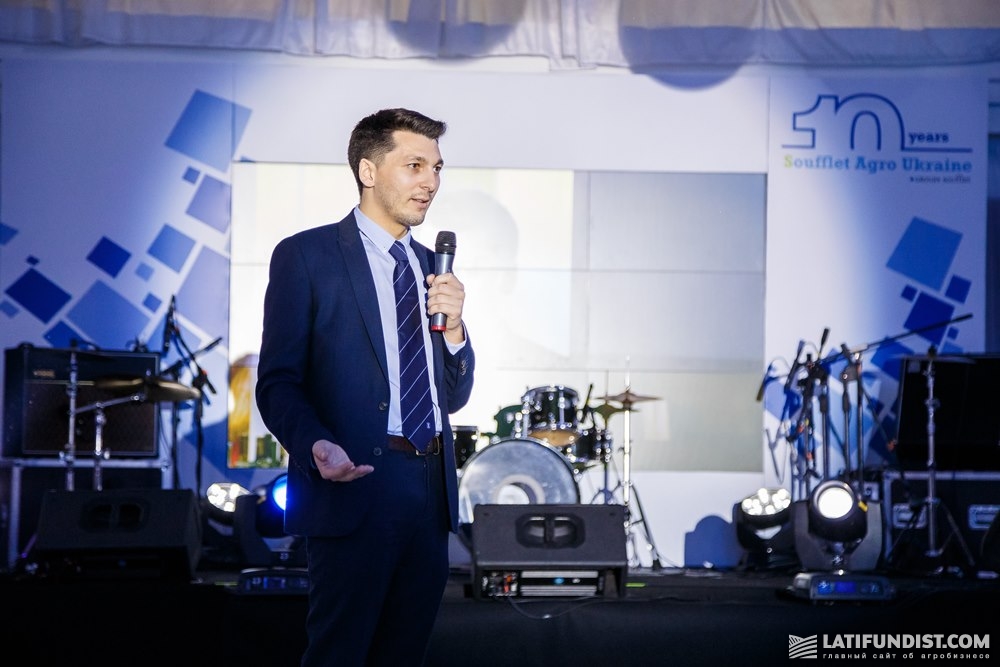
Latifundist.com: In the case of the opening of the land market, the company would not prohibit its specialists from owning their own agribusiness, while working in Soufflet. Do you dream about your own farm?
Samuel Robard: It is rightly described that in Soufflet, unlike in other companies, no one is officially forbidden to run a small farming. The main thing is to be able to perform your functions both here and there. Yes, we are a multinational company, but, first of all, we are farmers. After all, how else can you better understand the land on which and for which you work? Therefore, own farm is a "yes"!
Latifundist.com: And what will it be like?
Samuel Robard: A little one.
Latifundist.com: According to Ukrainian or French standards?
Samuel Robard: I only live by Ukrainian standards.
Latifundist.com: Cool. We wish you success! And thanks for the interesting conversation.
Daryna Kozoriz, Latifundist.com

